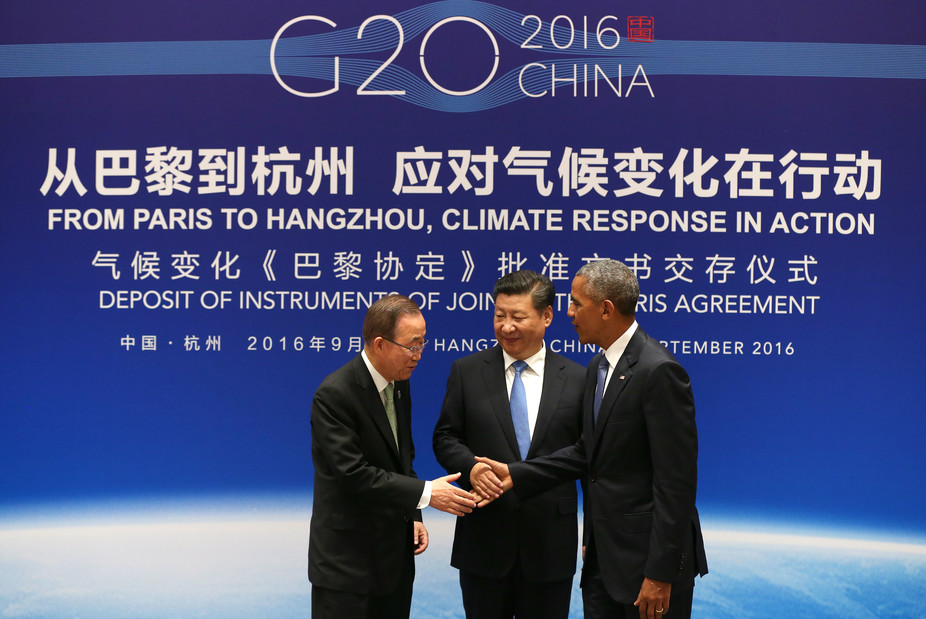Professor of Economics from the University of Southern California, who also holds a degree in Letters, Arts and Sciences from Dornsife College, says that for China, climate change is no hoax, but a business and political opportunity.
In mid-November, while Americans were preoccupied with election returns, China sent some of its clearest signals yet that it will continue to pursue an international leadership role on issues including climate. At an international climate change summit in Marrakech, the Chinese government reasserted its commitment to reduce its greenhouse gas emissions.
The government announced that its aggregate emissions will peak by 2030 or earlier, and that its emissions per dollar of economic output will decline sharply.

Chinese President Xi Jinping, center, U.S. President Barack Obama and U.N. Secretary-General Ban Ki-moon shake hands during a joint ratification of the Paris climate change agreement in eastern China’s Zhejiang province, Sept. 3, 2016. How Hwee Young/Pool Photo via AP
For 25 years I have taught my economics students that climate change represents the ultimate “free rider problem.” To slow global climate change, we need to reduce aggregate global emissions. Yet each individual nation’s efforts are too small to “solve” the problem, so it has only weak incentives to take costly mitigation actions, and strong incentives to “free ride” on the benefits of emission reductions by other countries.
From this perspective, President-elect Trump’s pledges to “cancel” the Paris Agreement and dismantle President Obama’s carbon mitigation initiatives follow standard economic logic. If the United States backs out of commitments to reduce national emissions, it still benefits from other countries’ efforts.
Why, then, is China pressing ahead with low-carbon initiatives? My research suggests several motives. Chinese leaders want to improve the quality of life in their nation’s cities by reducing air pollution; win large shares of promising export markets for green technologies; and increase China’s “soft power” in international relations. Taking aggressive action to cut carbon emissions helps China in all three areas.

Workers examine wind turbine blades at a Vestas Wind Technology factory in Tianjin, 2010. (AP Photo/Ng Han Guan, File)
Click here for full article on theconversation.com/
Disclaimer: Matthew Kahn does not work for, consult, own shares in or receive funding from any company or organization that would benefit from this article, and has disclosed no relevant affiliations beyond the academic appointment above.


